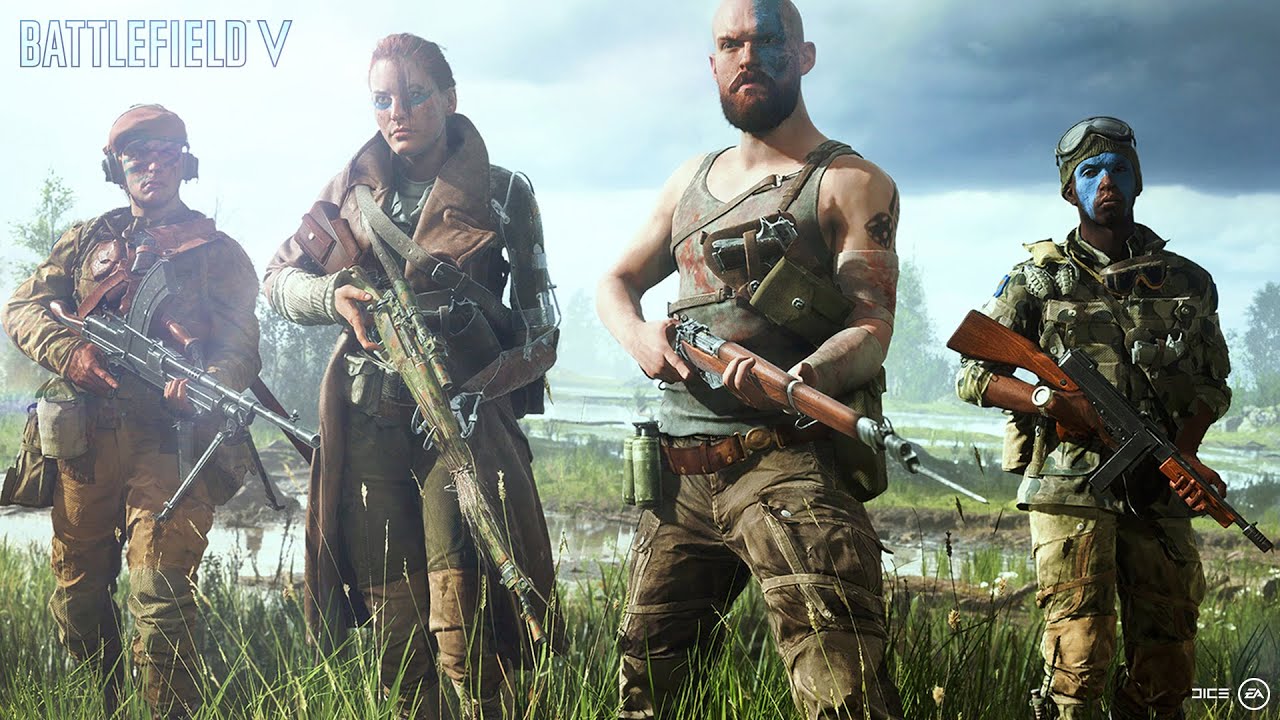Women in WWII Game Once Again Not ‘Historically Accurate’ Enough for Angry Internet Men

Yesterday, the trailer for the game Battlefield 5 debuted, yet another game focusing on players pretending to shoot at each other on the internet. This new installment had promised to bring more realism into things in some ways, but it’s still very definitely a video game and not intended to be a perfect reproduction of its World War II setting, and that has predictably angered some gamers on the internet, at least where it comes to including women and people of color.
Of course, no one is up in arms about any other way the game isn’t exactly like reality, but dare to use your artistic license to let the people in your audience see themselves in your product, and people will be Mad Online. The game’s trailer over on YouTube currently has 165k likes to 131k dislikes, and some of the vile comments underneath reveal why. You can’t go more than a few, even in the “top comments,” without seeing someone complaining about women, black men, or disabled people (one of the characters has a prosthetic arm) fighting in World War II.
Some of them also complain about other elements of the game, but the common thread is the sentiment that inclusion is being prized over the appearance of some of the characters, which, it should be noted, doesn’t have any effect on how the game is played and is a strange thing to object to. It’s not just confined to the YouTube comments, either, and Kotaku has a bunch of other examples from around the internet. But instead of looking at those awful comments, frequently accompanied by #NotMyBattlefield, let’s take a moment to appreciate some of the greatest hits of the Battlefield series’ incredible accuracy to real life, courtesy of a Twitter thread by David Milner of Game Informer Australia, to remind them how accurate ‘their battlefield’ is:
“Battlefield has abandoned historical accuracy for political correctness” pic.twitter.com/OpCRFV2zV8
— David Milner (@DaveMilbo) May 23, 2018
“With female soldiers Battlefield is abandoning realism” pic.twitter.com/40JrSe38nh
— David Milner (@DaveMilbo) May 23, 2018
Truly, a great disservice was done by allowing people to create characters to participate in their gamified historical fiction that actually look somewhat like them. It’s also, of course, not really as historically inaccurate as the detractors would have you believe, but that ironic, willful ignorance of history (probably stoked by a history of, you guessed it, missing representation in media) is only one facet of the overall issue. Remember: Those who complain about this kind of representation hide behind rationalization like ‘historical accuracy’ and ‘I just don’t want it shoved in my face’ to obscure the truth that they’re just hateful, even if they’ve fooled themselves into believing that rationalization.
(image: EA DICE)
Want more stories like this? Become a subscriber and support the site!
—The Mary Sue has a strict comment policy that forbids, but is not limited to, personal insults toward anyone, hate speech, and trolling.—
Have a tip we should know? tips@themarysue.com